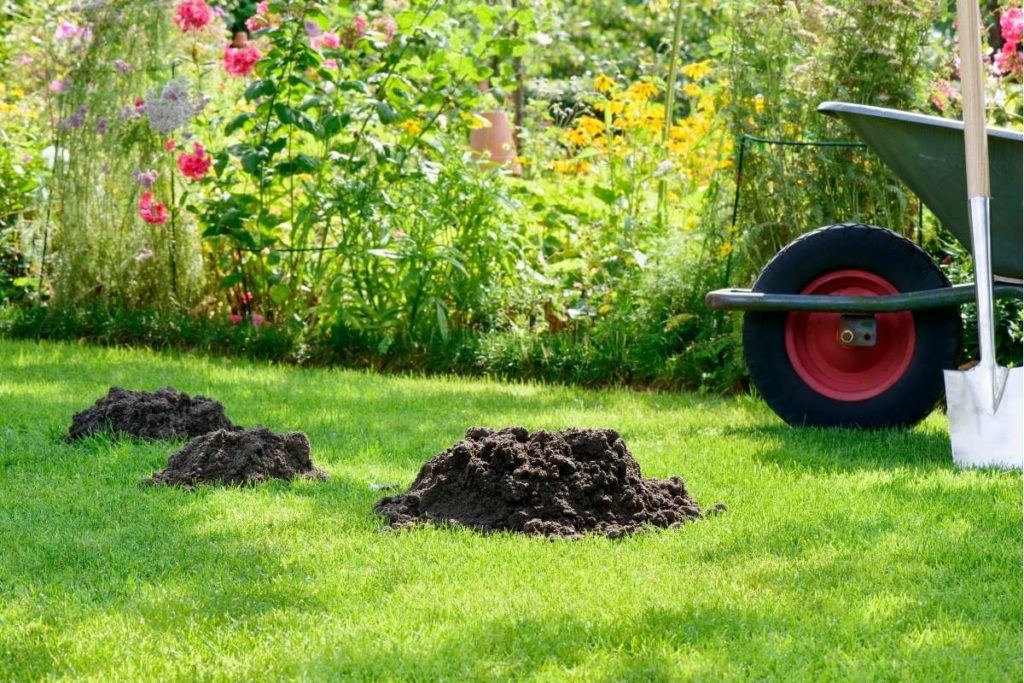How to Get Rid of Moles from your Garden
It can be incredibly inconvenient if you find yourself with a mole infestation. The ground-dwelling carnivores can dig up to four metres an hour, creating complex tunnelling systems to locate their preferred snacks of worms, grubs and larvae. Although moles pose no great threat, they can leave your garden looking untidy. Therefore, we have collated some of the best DIY methods to get rid of moles in a humane and effective manner.

Signs of a Mole Infestation
Garden moles regularly consume earthworms, so landscapes with fertile soil will often attract these small and friendly creatures. Although moles are rarely seen because of their underground habitat, there are some tell-tale signs of mole infestations usually noticed during late winter and early spring when moles are most active. These signs include:
- Disturbed plants and grassland
- The ground becoming suddenly uneven
- Heaps of soil surrounding a hole in the earth (also known as a molehill)
Negatives of a Mole Infestation
Although moles cause very little harm, their digging can make your landscape look unkempt. Moles enjoy dark, dry environments but hunt for food where the soil is moist, disturbing the earth and leaving mounds of dirt around your landscape. This can be a pain; however, it’s important to consider the benefits of moles occupying your land.
Positives of a Mole Infestation
The relentless digging of moles may seem like an annoyance; however, their tunnel building actually fertilises and aerates your soil. You can take advantage of their digging even further by utilising the sifted topsoil they leave behind as potting compost. This soil is perfect for young plants; simply add some coir or sand.
The potential benefits moles bring to your garden far outweigh the negatives. Therefore, if they aren’t too much hassle, consider living alongside them. It’s unlikely they’ll remain in your garden forever as they only stay in an area if there is a consistently large food supply.
DIY Techniques to Get Rid of Moles
A common misconception is that filling in molehills with earth is an effective method to get rid of moles. However, these creatures are expert diggers, so they can easily make more tunnels and mounds around your landscape. Instead, we recommend the following three methods proven to get rid of moles from your garden humanely:
- Plant some flowers – Moles strongly dislike marigolds, daffodils and alliums; therefore, a simple yet effective way to get rid of moles is to plant these types of flowers around your garden.
- Use items with a strong scent – Moles have a strong sense of smell, so place biodegradable and pungent items, such as strong-smelling cheese, sour milk, over-fermented yoghurt and coffee into their tunnels. Not only is this method effective, but it will also help fertilise your soil.
- Play something loud – Moles have acute hearing. Placing a radio in their tunnel and turning up the volume will likely scare the moles away.
There is no denying that moles can be a nuisance. If an infestation is getting out of hand, we recommend contacting a mole control expert.
Here at Confirm a Kill, we have over 25 years of experience in pest control, making us Nottingham’s mole control experts. We prefer humane mole removal methods, including harmless traps that effectively catch moles no matter how deep their tunnel, whilst protecting non-target species and wildlife.
Contact us today and speak with our friendly team to discuss a complimentary inspection and recommended course of treatment to help get rid of moles in your garden.
